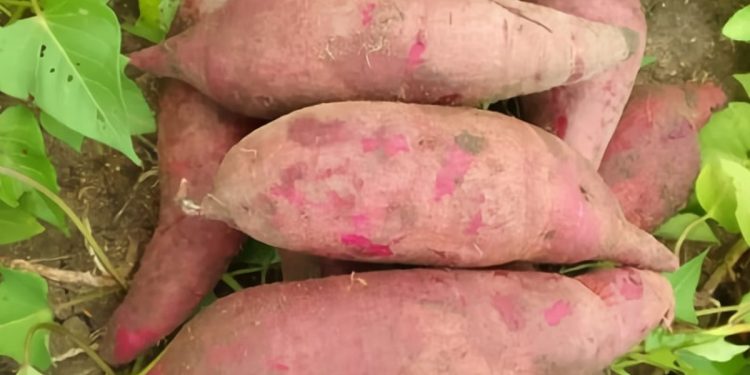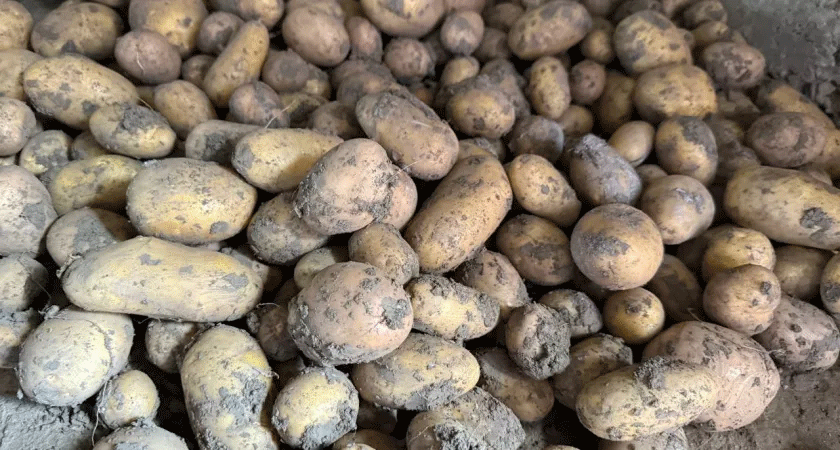#agriculture #sweetpotato #climateresilience #foodsecurity #nutritionalcontent #collaborativeresearch #climatechangeadaptation #agriculturalinnovation #Kenya #CIP #KALRO #purple-fleshedsweetpotato #anthocyanin #antioxidants #sustainablefarming
In a remarkable collaboration between the International Potato Center (CIP) and the Kenya Agricultural and Livestock Research Organization (KALRO), the agriculture landscape in Kenya is set to take a significant stride forward. The duo’s joint effort has borne fruit in the form of the KC-SWEET PURPLE sweet potato variety. This innovative cultivar, originally known as TU-82-155, hails from Ghana, where it was introduced as ‘SARI-DIEDI’ by the Savanna Agricultural Research Institute (SARI). Its success in Ghana and its impressive adaptation to challenging climates have spurred its adoption in Kenya, where it is poised to revolutionize farming practices.
The purple-fleshed marvel, aptly named ‘KC-SWEET PURPLE’ for its Kenyan debut, is far more than just an aesthetically pleasing addition to the agricultural scene. This climate-resilient sweet potato variety carries the potential to address ongoing climate challenges and ensure food security for farmers in Kenya. Through meticulous testing, including the National Performance Trials conducted jointly by KALRO and CIP, the cultivar’s exceptional qualities have been affirmed, solidifying its status as a game-changing agricultural asset.
Particularly suited for dry land areas in Eastern Kenya, such as Makueni, Machakos, Kitui, and Tharaka Nithi, as well as potential areas like Siaya, Alupe, Embu, Kakamega, Taita-taveta, and Kwale, KC-SWEET PURPLE has been proven to have a maturity period of 120 – 150 days and an impressive yield of 15.74 tons per hectare. Its erect plant type, green leaves that shift in color as they mature, and flowering habits contribute to its resilience and adaptability.
Beyond its agronomic merits, the KC-SWEET PURPLE sweet potato boasts a bounty of nutritional attributes. With its rich content of beta-carotene, iron, and zinc, it holds promise as a potent natural source of vital nutrients. The deep purple hue of its skin and flesh, a result of high anthocyanin levels, not only adds visual appeal but also signifies the presence of antioxidants. The potential use of this variety as a healthful food additive and a source of natural food colorant has captured the attention of the food processing industry.
The collaborative efforts of CIP and KALRO in the development of KC-SWEET PURPLE underline the significance of collective action and knowledge sharing in mitigating the challenges posed by climate change. As clean planting materials become more accessible through institutions like KALRO Kiboko and registered vine multipliers, the potential for widespread adoption of this climate-adaptive, nutrient-rich sweet potato variety becomes increasingly promising.
The release of the KC-SWEET PURPLE sweet potato variety stands as a testament to the advancements possible through international collaboration and scientific innovation. By marrying climate resilience with exceptional nutritional content, this cultivar has the potential to empower farmers, enhance food security, and contribute to healthier diets. As the journey from Ghana to Kenya unfolds, the impact of this vibrant purple-fleshed marvel on agriculture could very well be the beginning of a new era in sustainable farming.







